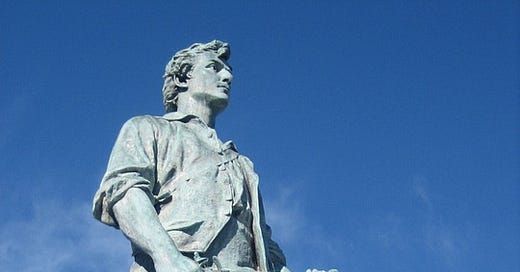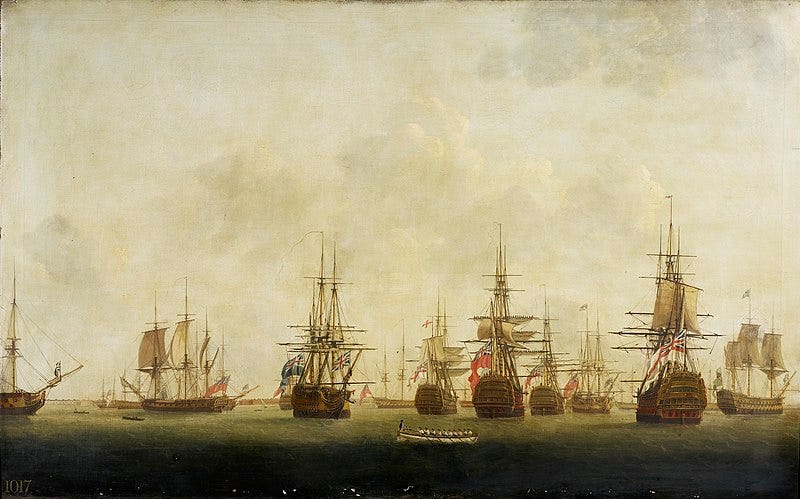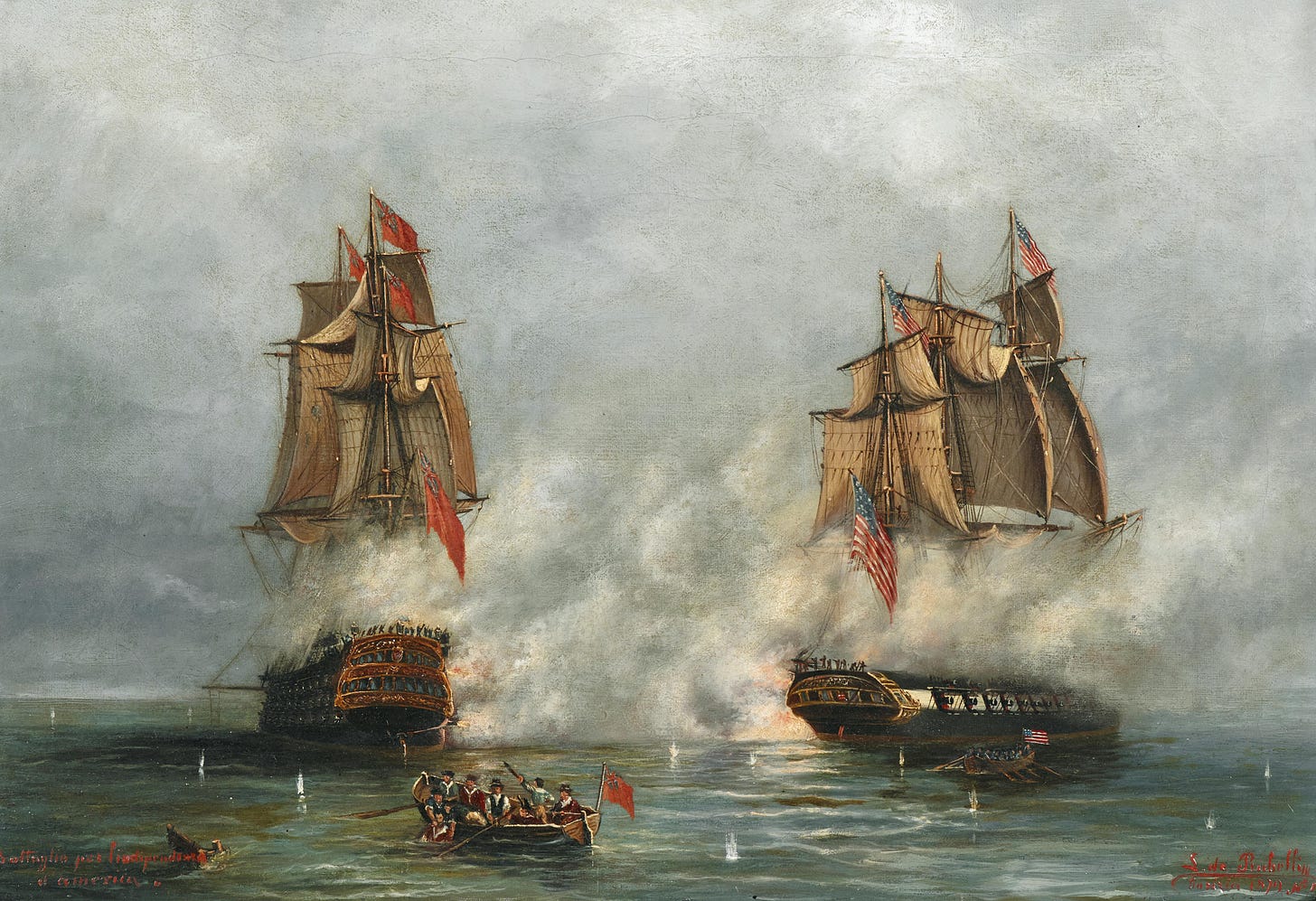The events described below are ficitious. It’s strongly suggested to listen to the music below whilst reading this story.
The year is 1767 and the Townshend Acts have been passed. All without your representation, of course. You and a group of fellow Patriots gather down at the local public house to discuss locally, in private, away from the prying eyes and ears of the British.
What will you do about the matter? It’s not right that you’re being taxed without representation, money and businesses run into the ground over unjust foreign wars the government are too broke to pay because they keep performing the same reckless spend-spend-spend routine.
Inside the cozy space, where you ensure there are no unidentified people amongst you, and no means for the messages to leak out, you discuss local problems and remark on the issues the current government are causing you. Your survey the area.
You’ve tried peace, you’ve tried petitions, appeals, retorts, legislation, but it gets nowhere with the British government. Talk turns to a more violent approach. It wasn’t an easy topic to broach. Most of the men in the room are veterans from prior wars, with tales of battlefield trauma and lost loved ones.
One man stands to address the room.
But we have no ships, no army, no means by which to oppose the might of the British army. We might as well give up! The war seems hopeless and lost, for the empire of the British is great and we are but few. Surely there are British loyalists, everywhere, even amongst our own ranks?
Murmurs go throughout the room. The risk is great. Death is involved. The British empire is large and the Americans who believed in freedom in that room were small. How could they ever possibly hope to defeat the British? The British had a navy for crying out loud, the Americans had nothing.
Another man addresses the room. ‘We must not lose hope’, for we will find a means. If there is a will, then there will be a way!
The Patriots in the room strategise. ‘We must inspire the American public to join us on this crusade against the terror of the British empire!’
But how? They had printing presses, leaflets, phamplets, and worked day and night to recruit members to join them in opposing the British. Lanterns and coded signals and codewords were invented, each system native to the local region, meaning it was difficult for non-natives, such as the British, to decipher.
With such coded signals, such as signs being covered or uncovered, hand gestures, a person occupying a specific spot at a particular time of day, one lamp by land, two if by sea, they operated with discretion to avoid detection by the British empire.
It did not matter if the British had a sizeable navy. Americans built their own sloops - overglorified yachts with cannons. Americans built whatever they could with whatever they had. Smaller ships, with faster speed, able to work in shallower waters, allowing the sloops to avoid engagement with the heavier British ships. Americans exploited the geography of their land to give them an advantage against their stronger opponent.
Some Brave Americans would even just steal British naval vessels, and use them for their own ends. Piracy against a superior opponent was fair game. The penalty was death either way; treason or piracy. They would then use the ships to raid other ships for supplies and capture other ships for use.
The sloops would then embargo ports and supply lines for the enemy, and try to lure away larger protective vessels embargoing American towns and cities with bait and run tactics. Speed and smarts were the order of the day.
If the American Revolutionaries didn’t have any cannons, they manufactured their own. If they didn’t have their own lead shots for muskets, they manufactured their own. If they couldn’t build something, they’d improvise. A bow and arrow was better than nothing at all.
The Americans would ask for foreign allies; Native Americans, French, Portugese, basically, anyone opposed to the British empire with an axe to grind. The foreign allies would either send manpower or supplies.
Alliances weren’t always permanent, but instead ones of convenience. Just because you hate or dislike someone now, doesn’t not mean they cannot temporarily become an ally. Americans worked with anybody and everybody who were willing to achieve specific objectives together.
The Americans required people of sizeable finances to win against such a large power. They befriended the rich and influential alike who had similar views to them. They would provide the resources required to finance a war.
As the war raged on, the British tried to adapt, but the Americans adapted even faster to their tactics. Americans would capitalise upon any British wrongdoing with great outrage and indignity to drive up more support for their movement. Americans would avoid committing similarly to avoid public opinion turning against them.
Americans picked symbolic targets at first to garner sympathy, such as the Boston harbour where they tossed tea into the river. They did not try to violently attack the British directly first, instead aiming for symbolic, overt victories first destroying low value targets to anger the British into a response to garner more public outcry and thus sympathy for the cause.
The American Revolutionaries worked with whomever wished to aid them. Rich, poor, black white, freeman, slave, male, female, even children - of their own volition - got involved. They did not discriminate because being outnumbered they could not opt to be picky about who they work with.
As other Americans noted, any wrongs can be rectified after the war, not during it. Mistakes were made, but Americans learned from them. They drilled. They trained. They got uniforms, although unfortunately the uniforms were not camouflaged. They tried to get the latest in protective equipment, such as boots. They became physically fit and trained.
As the Americans organised, they were able to more effectively resist the British. One could say their efforts were akin to the Partisan movement of WW2 France, where resistance cells were used, insulated from each other.
It was necessary to have the support of an area or region before declaring control over it. Before the Americans even struck at the British, they had all 13 colonies onboard. They did not declare war without majority support for that war from those who had the powers required to wage war.
You sit back, dumbfounded at the extent of organisation required. People will write books about how the American Revolution was achieved, documenting everything they did in detail, books about war, tactics, finances and politics. Many books will be written on such subjects.
You choose to leave the public house meeting you’re in, to go to the next one in the town over, and find others locally like you. You best be prepared and have supplies for the long trip, as the other American Revolutionaries did, who formed tunnel networks between buildings to act as a smugglers’ network to avoid the British. Including false tunnels. Hidden.
Where will your next journey take you, you wonder…












An excellent, impeccable commentary, only improved by the rousing musical accompaniment.